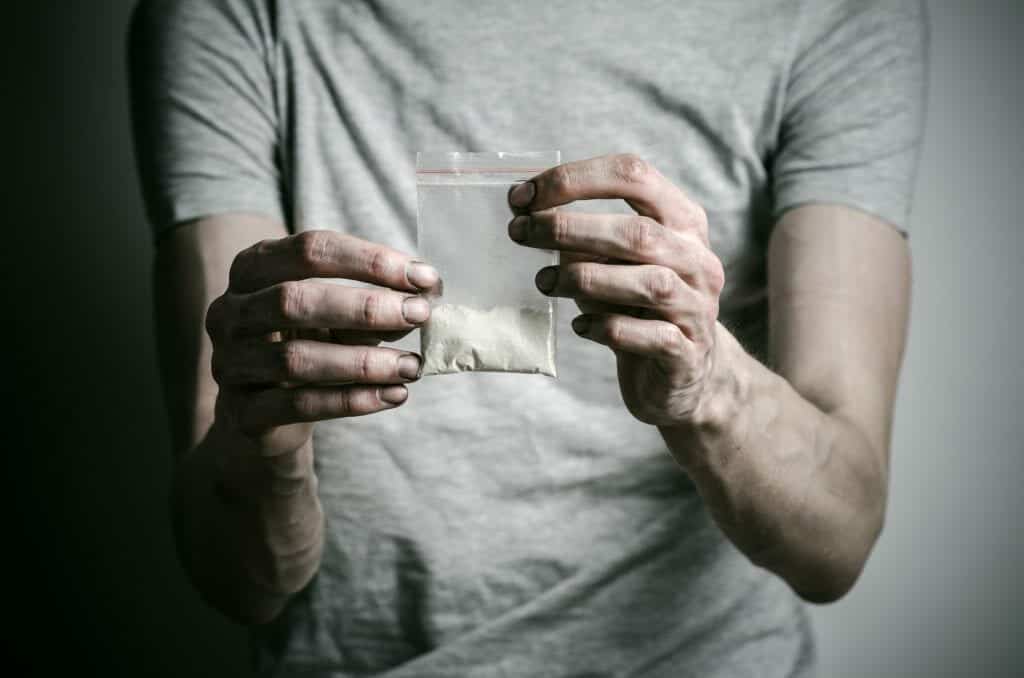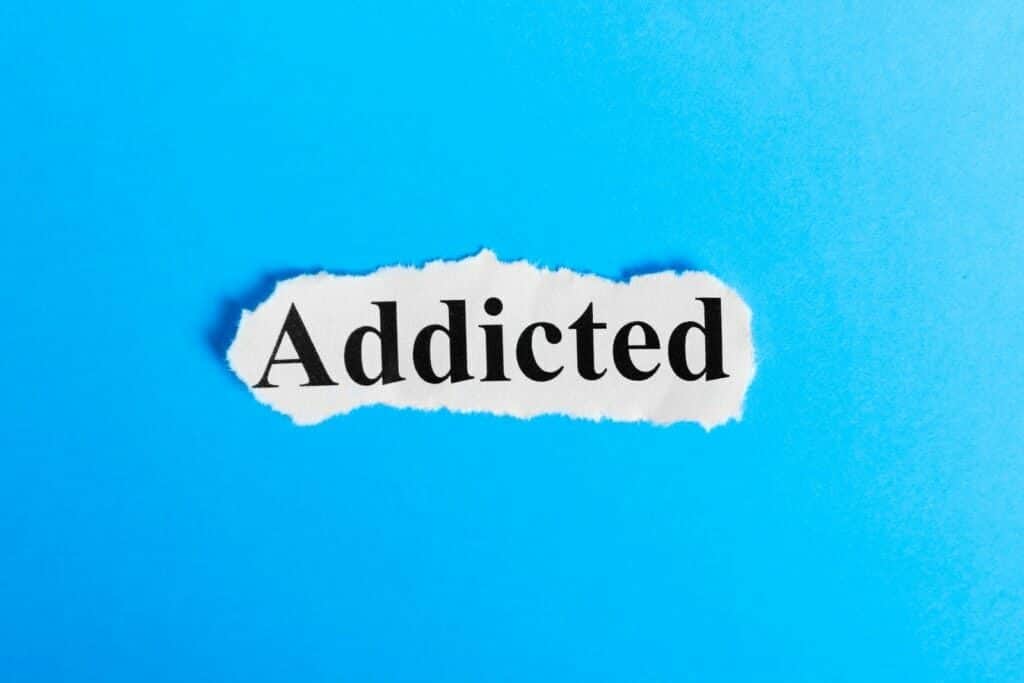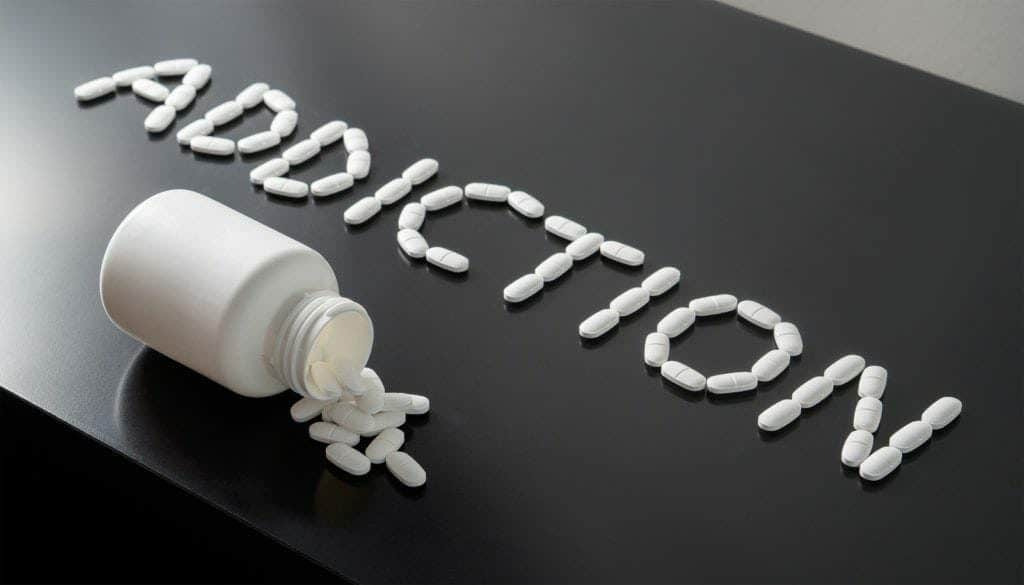Over the past few decades, prescription drug abuse has become a serious problem in this country. But why? For starters, there has been a drastic increase in the number of prescriptions written and dispensed. In addition, there is greater social acceptability for using such medications. This has led to broad “environmental availability” of prescription painkillers and contributed to the severity of the current drug abuse problem in this country.
Opioid Prescription Statistics
Greater availability of prescription painkillers means an increase in the negative consequences related to their use and abuse. Consider the following statistics:
- In 2012, 259 million prescriptions were written for opioids, which is more than enough to give every American adult their own bottle of pills.
- In 2016 prescribers wrote 66.5 opioid and 25.2 sedative prescriptions for every 100 Americans.
- Drug overdose deaths in America more than tripled since 1999.
- In 2008, the number of deaths involving prescription opioids exceeded the number of deaths from heroin and cocaine combined.
- Most persons using heroin have had a history of misusing prescription opioids first.
Thankfully, opioid and high-dose prescribing rates have started to level off and even decline. This suggests that healthcare providers are aware of these facts and are starting to become more cautious in their practices. But for some, this may be too little too late.
Effects of Painkillers
For those already addicted to or dependent on prescription painkillers, they’re left to deal with the serious side effects that come along with their use and abuse. The points listed below highlight how painkiller use can affect an individual’s physical health:
- Compromised Immune System. Immediately upon taking painkillers, the body’s ability to fight off infection weakens. With no proven way to boost immune function, the best way to manage this side effect is to stop taking painkillers immediately.
- The Stomach and Intestines. Painkillers are well-known for causing severe constipation. This can set in only a day or two after use begins and can cause abdominal distention and bloating, as well as more serious side effects such as hemorrhoids and bowel obstruction.
- Increased Pain. As crazy as it may seem, painkillers can actually intensify pain in some people. People who experience this side effect are either transitioned to a different drug or weaned off painkillers altogether.
- Hormone Levels. Use of painkillers often causes low levels of testosterone or estrogen (the male and female sex hormones), which may result in erectile dysfunction, reduced libido, fatigue, hot flashes, menstrual irregularities, weight gain and depression. And hormone imbalance can lead to more serious complications, such as infertility and osteoporosis.
Want to learn more about the effects of painkillers on the body? Click here.
Meet Laura: A Cycles of Change Parent
“As a family member, I’ve witnessed Cycles of Change’s evolution over the past few years. In addition to beautiful new residential and after-care facilities, Cycles has added therapy techniques like role-playing, and placed an emphasis on nutrition and exercise. They also host a free three-day workshop that focuses on family issues that gave me tools to help deal with my daughters’ disease and to live a healthy life myself. I would encourage anyone seeking treatment for themselves or a loved one to contact Cycles of Change.”
Hear from more of our alumni and their families.
Detoxing from Painkillers & Opioids: What to Expect
The longer you use prescription painkillers or opioids, the more severe your withdrawal symptoms are likely to be during detox. While unassisted opioid withdrawal is not typically life-threating, it can increase your chances of relapse. Common painkiller withdrawal symptoms include:
- Tearing up
- Muscle aches
- Agitation
- Trouble falling and staying asleep
- Excessive yawning
- Anxiety
- Nose running
- Sweats
- Fever
- Racing heart
- Hypertension
- Nausea and vomiting
- Diarrhea
- Goosebumps
- Stomach cramps
- Depression
- Drug cravings
Medical Painkiller Detox versus Sub-Acute Painkiller Detox
Before detoxing from opioids, users should see a medical doctor to help determine what level of detox is needed. In severe cases, people who are struggling with opioid addiction may be referred to a medically-supervised detoxification process. In less severe cases, it could be possible to detox from prescription painkillers at a rehab center like Cycles of Change, which is licensed by the state of California to provide sub-acute detoxification.
Detoxing from Opioids at Cycles of Change
Detoxing from painkillers, or many other drugs, is not a fun process. There’s just no getting around it. However, detox is the critical first step you simply must take before beginning your journey to recovery. At Cycles of Change, we do everything in our power to reduce the feelings of pain and discomfort you may experience during opioid detox.
Get the Help You Need
The over-prescription of painkillers in America has directly led to the severity of this country’s current drug abuse problem. Cycles of Change Recovery Services in California is here to help your loved one gain the knowledge, courage, and determination needed to maintain a drug-free lifestyle. Every step taken is personalized to ensure your loved one reaches the goal of recovery. Facing addiction alone can be overwhelming. We’re here to help. Fill out this form or call today at (661) 630-4176.
Sources Used in this Piece
- https://www.drugabuse.gov/about-nida/legislative-activities/testimony-to-congress/2016/americas-addiction-to-opioids-heroin-prescription-drug-abuse
- https://www.asam.org/docs/default-source/advocacy/opioid-addiction-disease-facts-figures.pdf
- https://www.cdc.gov/drugoverdose/pdf/pubs/2017-cdc-drug-surveillance-report.pdf
- https://www.cdc.gov/drugoverdose/pdf/pubs/2017-cdc-drug-surveillance-report.pdf
If you are dependent on alcohol or other drugs, it doesn’t take long for your body to notice you’ve stopped consuming that substance. Once you’ve become both mentally and physically reliant on something, it takes some time to adjust to its absence in your system. This period of adjustment is commonly referred to as detox (or detoxification).
Withdrawal symptoms often surface during the detox process and range in severity. But if you do experience them, it’s important to remember they’re temporary. They’re an unpleasant but sometimes necessary part of the recovery process.
It’s also important to keep in mind that everyone responds to detox and withdrawal differently. There are a number of factors that influence how you respond including length of addiction, severity of addiction and availability of home and social support (among others).
Detoxing from Alcohol
Alcohol withdrawal (which usually lasts between 5-7 days) can be a life-threatening condition that can cause some serious problems. It’s recommended that individuals addicted to alcohol get the help of a qualified treatment center. By engaging the help of professionals, those seeking assistance can gain access to a number of prescription medications that can help minimize the severity of the following side effects associated with detoxing from alcohol.
Alcohol withdrawal symptoms include:
- Headache
- Trembling
- Cravings
- Sweating
- Nausea/vomiting
- Problems sleeping
Some individuals (about 1 in 20 who experience withdrawal) will experience delirium tremens (DTs), a more severe reaction to giving up alcohol. Symptoms include:
- Agitation
- Confusion
- Delirium (seeing/hearing things that aren’t really there)
- Disorientation
- Extreme anxiety
- Convulsions
- Dehydration
Wondering if you or a loved one has a drinking problem? Read this.
Medical Alcohol Detox versus Sub-Acute Alcohol Detox
Before detoxing from alcohol, you should see a medical doctor to help determine what level of detox is needed. In severe cases, people who are struggling with addiction to alcohol may be referred to a medically-supervised detoxification process. In less severe cases, it could be possible to detox from alcohol at a rehab center like Cycles of Change, which is licensed by the state of California to provide sub-acute detoxification.
Detoxing from Alcohol at Cycles of Change
Detoxing from alcohol, or many other drugs, is not a fun process. There’s just no getting around it. However, detox is the critical first step you simply must take before beginning your journey to recovery. At Cycles of Change, we do everything in our power to reduce the feelings of pain and discomfort you may experience during alcohol detox.
Detoxing from Other Drugs
Medical or sub-acute detox is recommended for several other types of drug addiction as well. If you or a loved one abuses barbiturates, or opioid drugs such as oxycodone, Vicodin or heroin, professional help is suggested. But why these drugs specifically?
- Barbiturates: medications like Amytal and Seconal that are known to have life-threatening withdrawal symptoms. Related withdrawal symptoms include tremors, insomnia, agitation and hallucinations.
- Opioids: medications like oxycodone, Vicodin and heroin. Detox and withdrawal symptoms associated with these drugs are not usually life-threatening but many (95%) fail to complete detox successfully on their own. Related withdrawal symptoms include anxiety, rapid breathing, vomiting, confusion and tremors.
Want to make sure you or your loved one is choosing the right rehab center? Read this.
Meet Stella
“My husband and I owe our son’s recovery to the Cycles of Change Recovery program. He had been struggling for a long time before he asked for help. The program offered him the skills, motivation and self-esteem to stay sober and hopeful that he could create a healthy, wonderful new life for himself…They saved my son’s life and for that I will always be grateful.”
Hear from more of our alumni and their families!
Get the Alcohol Detox Help You Need
If you or a loved one has decided it’s time to give up alcohol or another drug, it’s important to get the help you need. Cycles of Change in California is designed to help individuals gain the knowledge, courage, and determination they need to maintain a drug-free lifestyle so they can flourish as a productive and functioning member of their family and society. Let’s take on this challenge together.
Call us today at (661) 630-4176.
Unlike physically addictive drugs like alcohol and heroin, cocaine is psychologically addictive. In fact, aside from methamphetamine, cocaine is considered to create the most significant psychological dependence of any drug. CESAR (the Center for Substance Abuse Research) classifies cocaine as “highly addictive” and states, “A person can become addicted after his or her first time trying crack cocaine.”
The high you get from consuming cocaine only lasts about 15-30 minutes. That’s why so many people take it in binges. And the more you use cocaine, the stronger and faster the addiction becomes.
Cocaine Addiction Symptoms
When you use cocaine, it affects the brain almost immediately. You’ll have feelings of intense well-being and be very talkative, energetic, and confident (hence, it is often referred to as a party drug). And it doesn’t take long for your brain to become dependent.
If you’re wondering if you’re addicted to cocaine, ask yourself the following questions:
- Do I suffer from anxiety and depression because of my cocaine use?
- Do I ask for money to buy cocaine without any intention (or ability) to repay it?
- Do I regret the decisions I make when I’m under the influence of cocaine?
- Do I plan my day around cocaine use?
- Do I steal, lie or break the law to get cocaine?
- Do I choose to use cocaine over my other interests?
It’s also important to look for the following symptoms associated with cocaine addiction:
Cocaine Symptoms & Warning Signs
- Dilated pupils
- Nosebleeds
- Restlessness and hyperactivity
- Irritability
- Sleeping for long periods of time
- Muscle twitches and tremors
- Anxiety
- Paranoia
- Increase in blood pressure, heart rate, and body temperature
If you answered yes to any of the questions above and/or are experiencing any of these symptoms, it may be time to seek treatment.
What to Expect During Cocaine Detox
The longer you use cocaine, the more severe your withdrawal symptoms are likely to be during detox. While unassisted cocaine withdrawal is not typically life-threatening, it can increase your chances of relapse or overdose. If you’re wondering what to expect from cocaine withdrawal syndrome, some of the most common withdrawal symptoms include:
- Agitation and restless behavior
- Depressed mood
- Fatigue
- A general feeling of discomfort
- Increased appetite
- Vivid and unpleasant dreams
- Slowing of activity
Medical Detox versus Sub-Acute Detox
Before the cocaine detox process begins, users should see a medical doctor to determine what detox level is needed. In severe cases, people struggling with cocaine addiction may be referred to a medically-supervised detoxification process. In less severe cases, it could be possible to detox from cocaine at a rehab center like Cycles of Change, licensed by the state of California to provide sub-acute detoxification services.
Detoxing from Cocaine at Cycles of Change
Detoxing from cocaine or any other drugs is not a fun process. There’s just no getting around it. However, detox is the critical first step you must take before beginning your journey to recovery. At Cycles of Change, we do everything in our power to reduce the feelings of pain and discomfort you may experience during cocaine detox.
Meet Chris
“Cycles of Change recovery services gave me a new lease on life. Before Cycles, I was just an empty person who found comfort through addiction. My addiction was the one thing that I felt I could count on, and it ultimately became my best friend and worse enemy. Cycles changed all of that. With the help of Joe and the people at cycles of change, not only did I find myself again, but I managed to do so while gaining lifelong friends in the process.”
Hear from more of our alumni!
Cocaine Addiction Treatment at Cycles of Change
If you’re ready to regain control of your life and overcome your cocaine addiction, you’re probably going to need some help. That’s why we’re here.
Cycles of Change Recovery Services is California’s premier cocaine addiction treatment center, equipped with the staff and tools needed to help you overcome your cocaine addiction. Located in Palmdale, our individualized treatment programs are designed to help you gain the knowledge, courage, and determination needed to live a happy and productive life.
Cocaine addiction recovery is not easy, but at Cycles of Change, you can recover in comfort and leave our cocaine addiction program more vital than ever. Call us today at (661) 630-4176.
Learn more about the cocaine addiction treatment services we offer!
It’s always important to remember that drug addiction is a disease. It affects a person’s brain and behavior, and leads to an inability to control the use of a drug or medication. Once you’re addicted, you may continue using the drug despite the harm it causes.
Like so many other prescription drugs, it doesn’t take long for the brain to become addicted to and dependent on Valium. As tolerance builds, doses must increase to experience the same high. Many users also become psychologically dependent on the drug, feeling as though they need it just to function in daily life.
Before we take a look at some of the side effects associated with Valium use and addiction, let’s familiarize ourselves with the basics.
Valium: The Basics
Valium (a commonly known brand of Diazepam in the United States) is used to relieve symptoms of anxiety, treat certain seizure disorders and help relax muscles or relieve muscle spasms. It can also be used to aid in alcohol withdrawal treatment.
Diazepam is a benzodiazepine, which is a central nervous system (CNS) depressant (meaning it slows down the central nervous system). Because of its dangerous and addictive nature, it’s only available with your doctor’s prescription.
Side Effects of Valium Addiction
Along with its desired and needed effects (i.e., eases anxiety, sedation, treats insomnia), Valium may cause some unwanted side effects. These are just a few:
- Shakiness
- Blistering, flaking or peeling of skin
- Fast heartbeat
- Unsteadiness, trembling, or other problems with muscle control or coordination
- Abdominal or stomach pain
- Blurred vision
- Fever
- Headache
- Difficulty swallowing
- Unusual tiredness or weakness
- Loss of appetite
- Unusual behavior
- Trouble concentrating
- Agitation
- Anxiety
- Dry mouth
When dealing with addiction, it’s always important to know the associated symptoms of overdose. Keep the following list in mind and get emergency help for yourself or a loved one if these symptoms occur:
- Change in consciousness
- Difficult or trouble breathing
- Irregular or shallow breathing
- Lack of coordination
- Loss of strength or energy
- Muscle pain or weakness
- Pale or blue lips, fingernails, or skin
- Unusual drowsiness, dullness, tiredness, weakness, or feeling of sluggishness
Detoxing from Valium: What to Expect
The longer you use Valium, the more severe your withdrawal symptoms are likely to be during detox. Like other benzos, Valium detox can be medically dangerous, which is why users should never attempt to quit “cold turkey.” Common Valium withdrawal symptoms include:
- Abdominal cramps
- Headache
- Tremors
- Sweating
- Muscle pain
- Vomiting
- Severe anxiety
- Confusion
- Restlessness and insomnia
- Numbness
- Hallucinations
- Seizures
Medical Valium Detox versus Sub-Acute Valium Detox
Before detoxing from Valium, users must see a medical doctor to help determine what level of detox is needed. In severe cases, people who are struggling with valium addiction may be referred to a medically-supervised detoxification process. In less severe cases, it could be possible to detox from valium at a rehab center like Cycles of Change, which is licensed by the state of California to provide sub-acute detoxification.
Detoxing from Valium at Cycles of Change
Detoxing from valium, or many other drugs, is not a fun process. There’s just no getting around it. However, detox is the critical first step you simply must take before beginning your journey to recovery. At Cycles of Change, we do everything in our power to reduce the feelings of pain and discomfort you may experience during valium detox.
Seeking Treatment for Valium Addiction
If you think you’re dependent on Valium or have a loved one who is, seek treatment today. Our addiction recovery center in California is designed to help individuals gain the knowledge, courage, and determination needed to maintain a drug-free lifestyle, while taking into account individual needs to help ensure success. Facing addiction alone can be overwhelming. Cycles of Change Recovery Services is here to help. Fill out this form or call us at (661) 630-4176.
Sources Used in This Piece
https://www.mayoclinic.org/diseases-conditions/drug-addiction/symptoms-causes/syc-20365112
https://www.mayoclinic.org/drugs-supplements/diazepam-oral-route/description/drg-20072333
https://www.mayoclinic.org/drugs-supplements/diazepam-oral-route/side-effects/drg-20072333
We know the story all too well. You’ve watched your loved one lose themselves to pills. Little by little, day by day the addiction starts to take over and you don’t even recognize them anymore. You used to have fun together. You used to go for hikes, cook dinner, watch movies. Now that’s all been replaced with struggles and deceit. But it’s not too late. Let’s find out a little bit more about how you can help someone you love with their painkiller addiction.
Want to learn more about the effects of painkillers on the body? Click here.
4 Questions to Consider Before Helping Someone With a Painkiller Addiction
Helping someone get the treatment they need is no easy task. And sometimes it’s hard to know where to start. Here are a few questions you can ask yourself as your loved one begins their recovery journey.
- Why can’t my loved one stop using painkillers on their own? Brain imaging studies of people with a drug addiction have revealed that repeated drug use significantly changes the brain, including the part that gives people self-control. These brain changes explain why quitting painkillers is so difficult, even when someone decides they’re ready to stop using them.
- Where should I start? You’ll need your loved one to accept they have a problem with painkiller abuse and admit they need help. If someone you care about asks you for help, acknowledge that that decision took a lot of courage and that there is a lot of hard work ahead. Remind them that there is a significant amount of research out there that proves treatment works and that people recover from addiction every day.
If your loved one seems resistant to help, try to convince them to at least visit a doctor for an evaluation. If they don’t want to listen to you, maybe they’ll listen to a professional who can connect them to the tools and resources they need.
- What should I look for in a treatment center? Everyone’s addiction is different and their treatment should be too. Ask questions to ensure the recovery center you choose is tailored to its patients’ unique needs, taking into account things like medical, psychiatric, and social problems. It’s usually best to find a center that offers both inpatient and outpatient programs as well. Your loved one should be able to choose the path that’s best for them.
- If my loved one does agree to go into treatment for their painkiller addiction, how can I offer support? This is a great question. We recommend you start by having a conversation with your loved one’s treatment provider. Different individuals need/want different levels of support. Offer encouragement and be willing to listen. Maybe ask them about what their triggers are in an effort to help prepare them for re-entering the life waiting for them back home. As long as your family member or friend is following treatment, continue to provide the love and support they need. If they relapse, encourage additional treatment.
How You Can Help Someone With a Painkiller Addiction
Recovering from addiction is challenging. But the more support an individual has from their friends, family, healthcare providers, therapists, counselors, fellow recovering addicts and others in the community, the better their chances are to successfully achieve their goal. If you think your loved one has a problem with abusing painkillers, here are a few things you can do.
- Say something. The earlier addiction is treated, the better. Tell your friend or family member that you are concerned about them and their health. Offer specific examples of their behavior that upset you or caused you to worry. Let them know you’re not judging them, but just want them to get the help they need.
- Take care of your own needs. Don’t let someone else’s drug addiction take over your life as well. Take care of yourself and lean on your support system. Make good choices and avoid dangerous situations.
- Remember that this isn’t your fault. Offer your loved one the support and love they need during their treatment but remember that you can’t force an addict (or anyone) to change. You can’t control their decisions and it’s important that they learn from their mistakes.
Meet A Cycles of Change Parent
“It’s hard to find the words to adequately praise Joseph Hunter and Cycles of Change. Prior to discovering Joe, we had years of bad experiences with several treatment centers for our daughter. It’s hard to know whom you can trust and who has genuine concern for a person’s sobriety or who is just in it for the money…We are thrilled to say that our daughter has been eight months clean and sober and is currently attending school. She is happier than she has been in years. We will be eternally grateful to Joseph Hunter and Cycles of Change.”
Hear from more of our alumni and their families.
Treatment for Painkiller Addiction
Cycles of Change Recovery Services in California is here to help your loved one gain the knowledge, courage, and determination needed to maintain a drug-free lifestyle. Every step taken is personalized to ensure they reach the goal of recovery. Facing addiction and treatment alone can be overwhelming. We’re here to help. Fill out this form or call today at (661) 630-4176.






